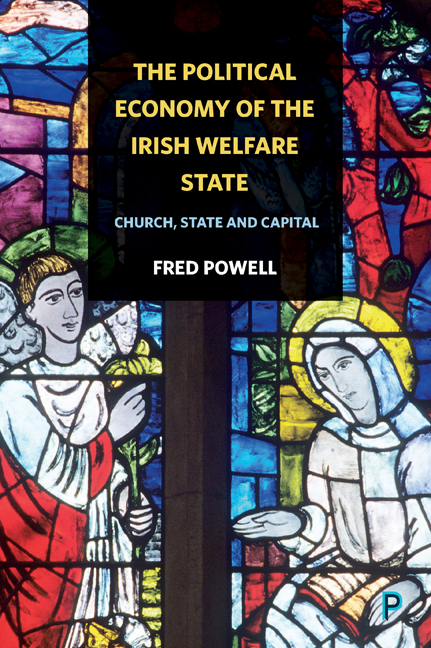Book contents
- Frontmatter
- Dedication
- Contents
- Preface
- Introduction
- one Why the welfare state matters
- two Revolution, culture and society
- three Welfare in the Free State
- four Religious nationalism, sectarianism and anti-semitism
- five The welfare state debate
- six Poverty and social inequality
- seven Liberty, gender and sexuality
- eight The marketisation of the welfare state
- nine Crisis, austerity and water
- ten Conclusion
- References
- Index
four - Religious nationalism, sectarianism and anti-semitism
Published online by Cambridge University Press: 08 April 2022
- Frontmatter
- Dedication
- Contents
- Preface
- Introduction
- one Why the welfare state matters
- two Revolution, culture and society
- three Welfare in the Free State
- four Religious nationalism, sectarianism and anti-semitism
- five The welfare state debate
- six Poverty and social inequality
- seven Liberty, gender and sexuality
- eight The marketisation of the welfare state
- nine Crisis, austerity and water
- ten Conclusion
- References
- Index
Summary
Corporatism was originally advocated by the Catholic Church in the 1930s as a way of upholding traditional society in an unfolding capitalist economy. It was argued if people are integrated into an organic entity built on partnership and solidarity the twin dangers individualism and class conflict, could be avoided.
Kieran Allen (2000: 38)The new Irish Free State sought to generate social integration by reorganising the cultural architecture of Irish society. This was a deeply counter-intuitive political strategy. The promotion of Catholicism to the official religious belief system did build on the existing subconscious architecture of the Irish mind. Gaelic and Catholic became synonymous. Less realistically, the new regime sought to look backwards over millennia to an imagined Celtic ancestry with its own distinctive customs and lifestyle. A sense of community was to be constructed through the rediscovery of a cultural tradition based upon myths, songs and – above all – language. Cultural traditions are normally handed from parents to children. The language revival movement in Ireland was confronted with the elemental problem that the Gaelic language was effectively dead and English was the vernacular of the home. Fintan O’Toole, grasping the irony behind the revivalist project, has commented: ‘More broadly, the nationalist desire to replace one culture with another came up against the Irish habit, when faced with incompatible alternatives of choosing both’ (The Irish Times, 10 September 2016).
In a project of daring social engineering, the government set about using the school to reacculturate Irish society. Brown (1985: 47) comments: ‘the government did in fact strenuously commit itself in such unlikely conditions to one radical policy – the apparently revolutionary policy of language revival’. He further notes that ‘the gaelicization of education encountered little opposition – only a few voices were raised to suggest that this demand that children should shoulder most of the burden of language revival might prove counter-productive’ (1985: 52). It was indeed to prove counterproductive because it was essentially counter-intuitive. The Irish government was seeking to create an exclusionary national and ethnic identity, what is currently termed ‘cultural essentialism’. However, it underestimated the inherited disposition to emulate parents and peer groups and to participate in popular (English-speaking) culture, for example, football, music, dance and film.
- Type
- Chapter
- Information
- The Political Economy of the Irish Welfare StateChurch, State and Capital, pp. 99 - 122Publisher: Bristol University PressPrint publication year: 2017



